Oregon Supreme Court's Edwin Peterson had a passion for law, mentoring minority students
Music or law, which would it be for Edwin Peterson? With a flip of a coin, he pursued a career in law, or so the story goes.
No offense to his skills on the French horn, one of the most difficult instruments to play, but had the coin flip gone the other way, efforts to streamline and diversify the Oregon judicial system could have taken a different path.
Peterson, former chief justice of the Oregon Supreme Court, died Dec. 2 at a memory care facility in Salem. He was 93.
He was well respected and admired in the profession, leaving a legacy of modernizing the state courts system and shedding light on racial and ethnic bias.
For all the recognition and awards he received throughout his legal career, he was perhaps most proud of the careers and lives of young law students he mentored.
Peterson had been a distinguished jurist in residence for the Willamette University College of Law since leaving the Supreme Court in 1993. He served as a mentor and did more than just share his expertise and experience with students in the classroom and mock courtroom.
He met them for lunch and played chess with them. He followed their careers after they graduated and stayed in contact with them until he couldn’t because of a debilitating illness.
Peterson died from complications of Parkinson’s disease, a progressive disorder that affects the nervous system. His widow, former Salem Mayor Anna Peterson, said he was diagnosed about 10 years ago. The last five years were especially difficult.
“It was heartbreaking to see a brilliant mind robbed by Parkinson’s,” his wife of nearly 53 years said. “It was a cruel way for such an intelligent man to die.”
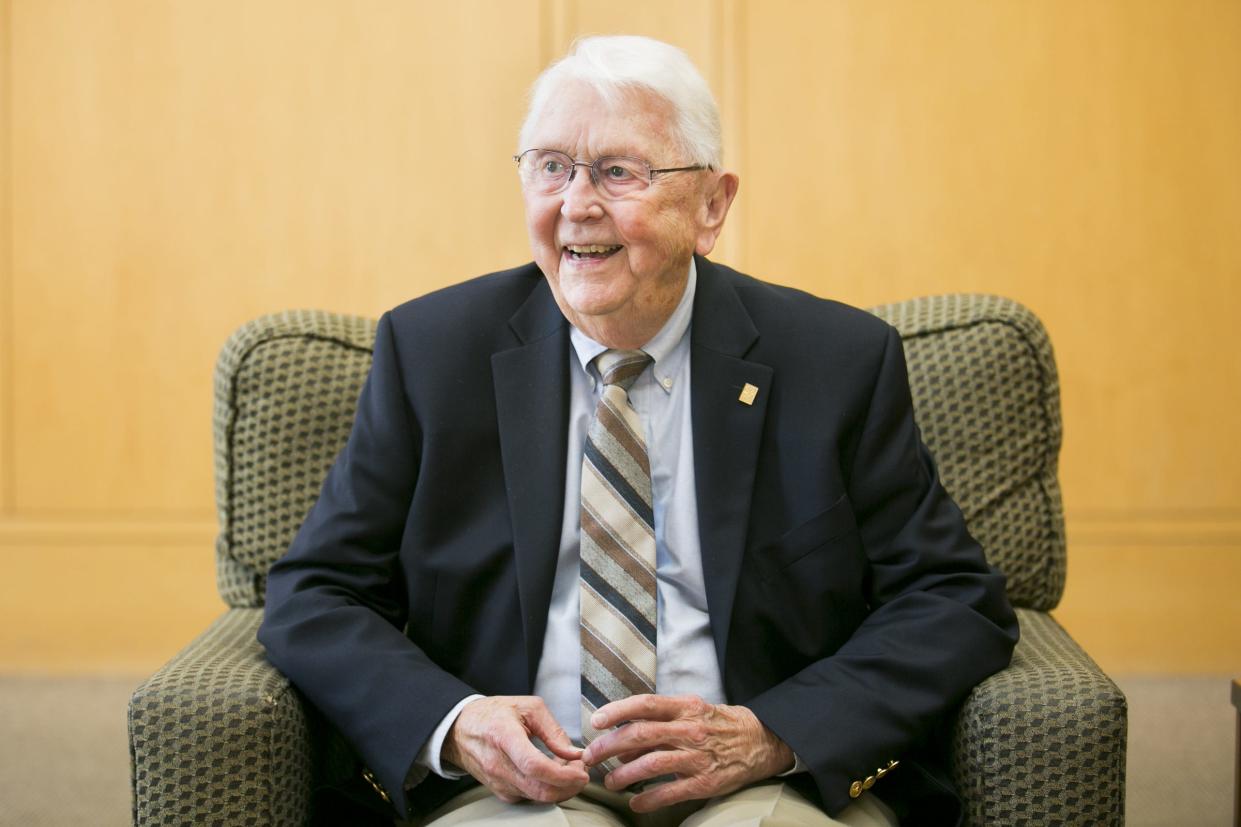
Getting noticed as a trial attorney
Edwin Junior Peterson was born in Gilmanton, Wisconsin, in 1930. He was a teenager when his family moved to Eugene in 1944 for a climate better for his and his mother’s asthma.
He graduated from the University of Oregon in 1951 with an undergraduate degree in music, then served as a first lieutenant in the U.S. Air Force. He returned to the University of Oregon to study law after being discharged.
When the coin flip happened is unclear, but Anna confirmed the story and said she wasn’t surprised it happened. He was passionate about both.
Peterson earned his law degree in 1957 and went on to work in private practice at a Portland firm specializing in civil tort, insurance and business litigation.
He and Anna met when she was a receptionist for the firm, and they married in 1971. They both had children from previous marriages, and their blended family went through some growing pains.
After 22 years as a trial attorney, Edwin Peterson was appointed in 1979 to the Oregon Supreme Court by then-Gov. Vic Atiyeh.
Smoothing relations across the Oregon
An Oregon Encyclopedia biography on Peterson indicated Atiyeh wanted to appoint somebody with trial experience, a shift from previous appointments to the court.
Peterson had tried dozens of cases before the Oregon Supreme Court.
To his surprise, nobody asked him about his political party affiliation during the process, another departure from how previous governors had made judicial appointments.
He was sworn in May 15, 1979, in the ceremonial office of the governor, reportedly meeting Atiyeh for the first time.
Peterson told the Statesman Journal he hoped to inject a dose of reality into the state's highest legal authority, or what he called “street experience.”
In 1983, he became the 39th chief justice, a unanimous choice of the six others on the court. The chief justice is the chief administrative officer of the judicial department, and Peterson arguably would become one of the most important in recent history.
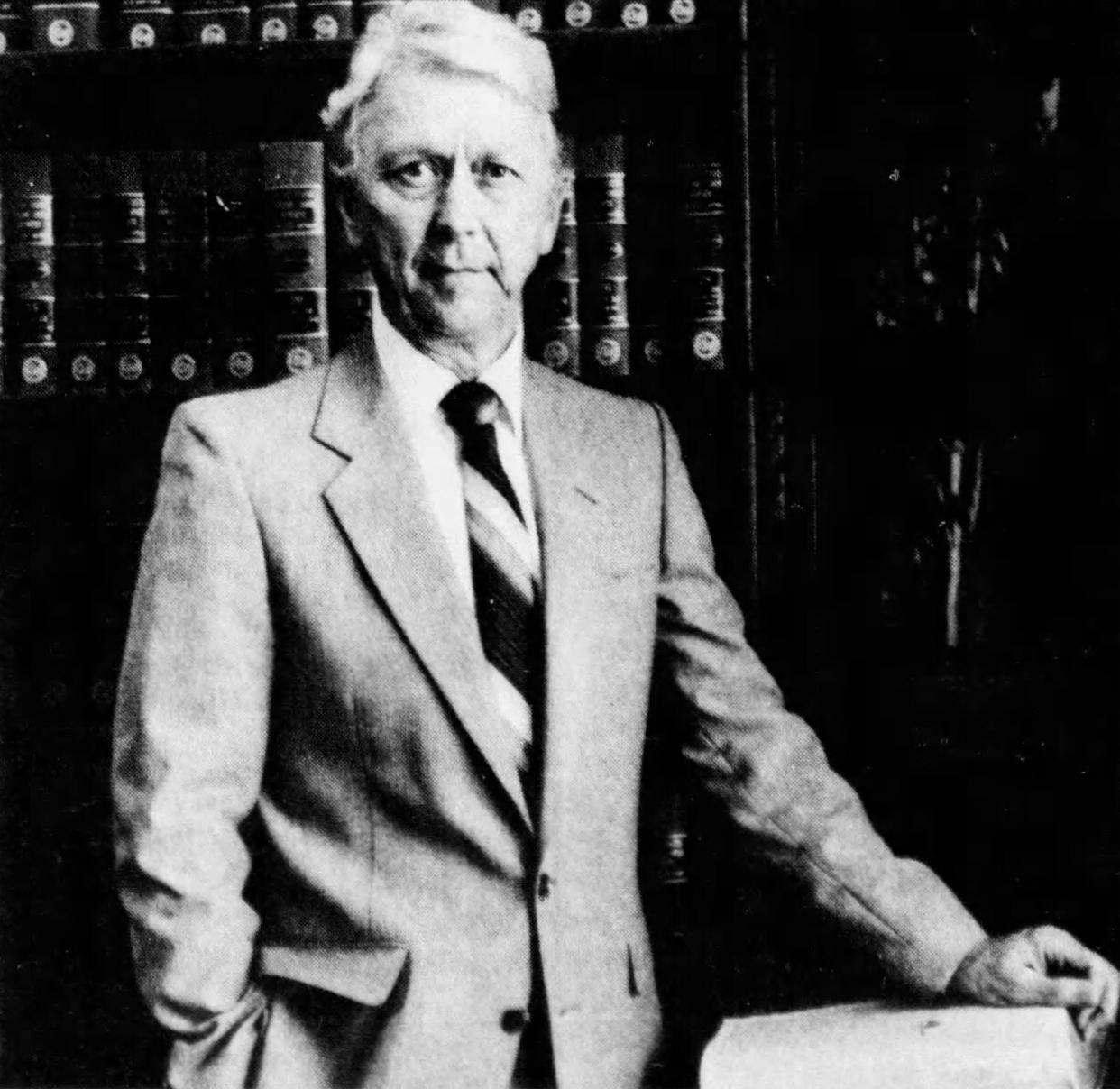
Peterson presided over the implementation of large-scale reforms, resulting in what was considered a more consistent and fair judiciary system and ending county-by-county differences.
He took over as the state consolidated 36 separate county courts into one integrated system and set out to visit every courthouse, hoping to smooth relations with trial court judges and county officials. He took photos during each visit, of the staffs and their work environment, and sent them prints afterward.
Within his first three months, he calmed their fears and gathered ideas about how the system could be more effective.
Peterson remained a crucial player in important Supreme Court decisions, including writing the opinion in Frohnmayer v. SAIF (1983), clarifying the authority of the Oregon attorney general.
He stepped down as chief justice in 1991 but remained on the court until he retired two years later, saying he wanted more time to work on opinions. The chief justice at that time oversaw 167 judges, 1,321 staff members and a $228 million budget.
Serving beyond the courtroom
Peterson's successor, Wallace P. Carson Jr., announced in 1992 the creation of task force on racial and ethnic issues in the judicial system and appointed Peterson as chairman.
The 17-member group, including 10 minority members, looked at disparities in sentencing, security releases, the charging process and interpreter adequacy. It conducted statewide public hearings and surveys of the legal community to identify problems faced by minorities.
The task force report in 1994 found minorities were more likely to be arrested, charged, convicted and incarcerated in Oregon as compared to similarly situated non-minorities. Among its conclusions were there were too few minority lawyers practicing in the state, which Peterson took to heart in retirement.
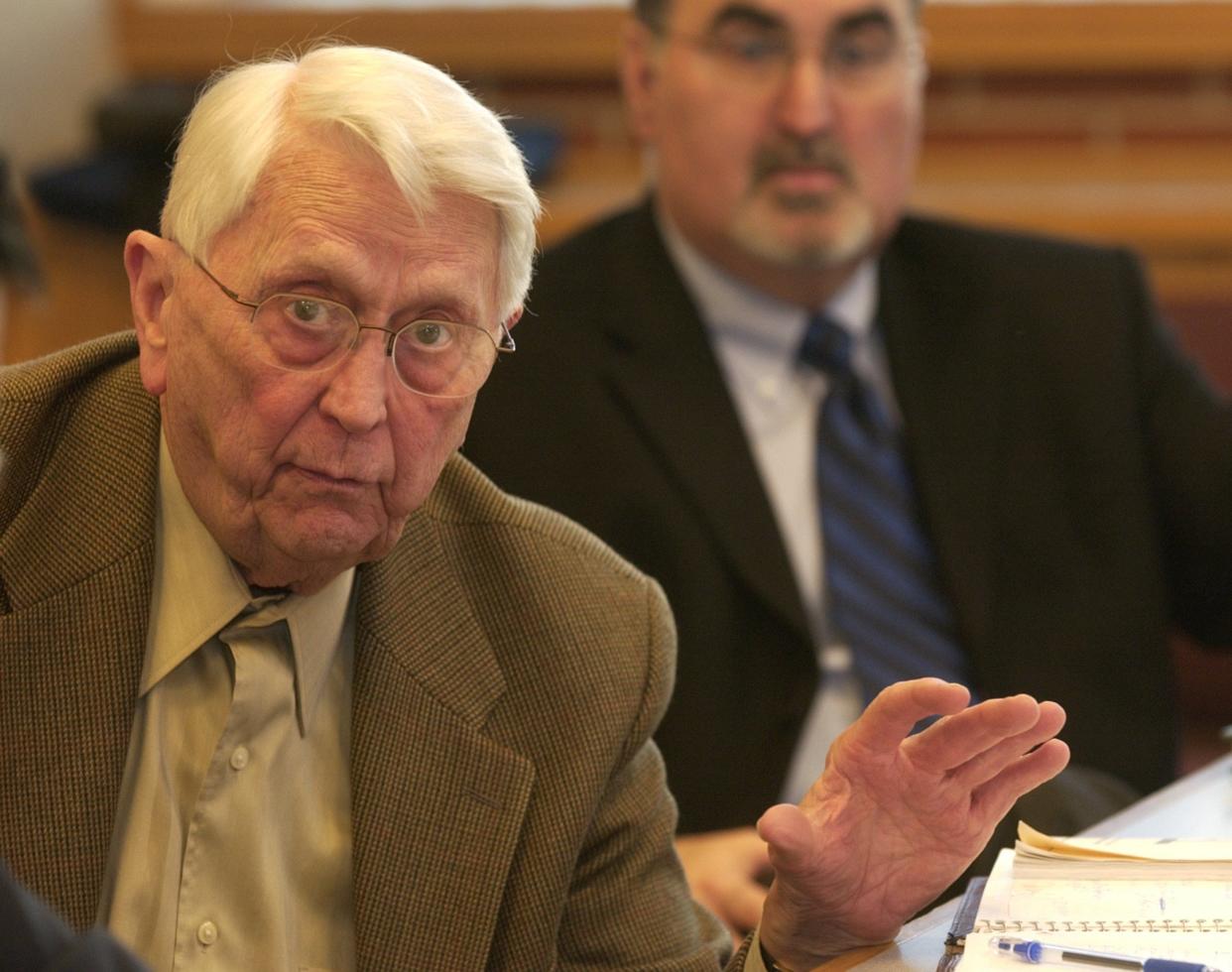
As a distinguished jurist in residence at Willamette, he coached mock trial and taught classes, including pretrial civil litigation for nearly 20 years. He taught his final classes during the 2013-14 academic year but continued to advise students through 2020-21.
Peterson got involved with the school's attorney mentor program when it launched in 1991, while he was still on the Supreme Court. Most of the students he mentored each year, at his request, were minorities.
The law school recognized him as Mentor of the Year in 1995.
James S. Davis met Peterson on the Willamette campus in 1995 as a first-year law student. He became a mentee, although not through official school channels. They bonded over a chess board, first in Peterson's office, then eventually at his home. Edwin and Anna became his extended family.
Davis was not the only minority law student surprised to find a middle-aged white man, seemingly a product of the "old boy's network" in Salem striving to understand the issues and help find solutions.
"One of the things that impressed me about him, he was sincere," said Davis, who now practices law in California. "He was trying to create change, trying to open doors, and trying to have minorities incorporated in a system, and not just incorporated, but a just system for minorities."
Peterson received numerous state and national awards for his work on diversity and professionalism.
He and Carson were co-recipients of The Skanner Foundation Drum Major for Justice Award in 1996.
Two years later, Peterson received the Lewis F. Powell, Jr. Award for Professionalism and Ethics, presented by the American Inns of Court at the U.S. Supreme Court in Washington, D.C.
He was similarly honored closer to home in 2003, when the Oregon State Bar created the Edwin J. Peterson Professionalism Award. The award recognizes a lawyer who consistently demonstrates integrity and honesty, holds themselves to the highest ethical and professional standards, and fosters the respect and trust of other lawyers, clients, members of the community and the judicial system.
Justice Peterson was the first recipient.
Traveling with family, coaching chess and fishing in style
Peterson was known to have other passions outside of law.
His family, for starters. He enjoyed traveling with his children, often on separate trips that strengthened their relationships, including Europe to hear church organs and Alaska to birdwatch.
Chess was a favorite pastime. For several years, including while he served on the Oregon Supreme Court, he was the chess coach at Faye Wright Elementary School in south Salem. He enjoyed spending time with the students, attended their tournaments and encouraged their love of chess.
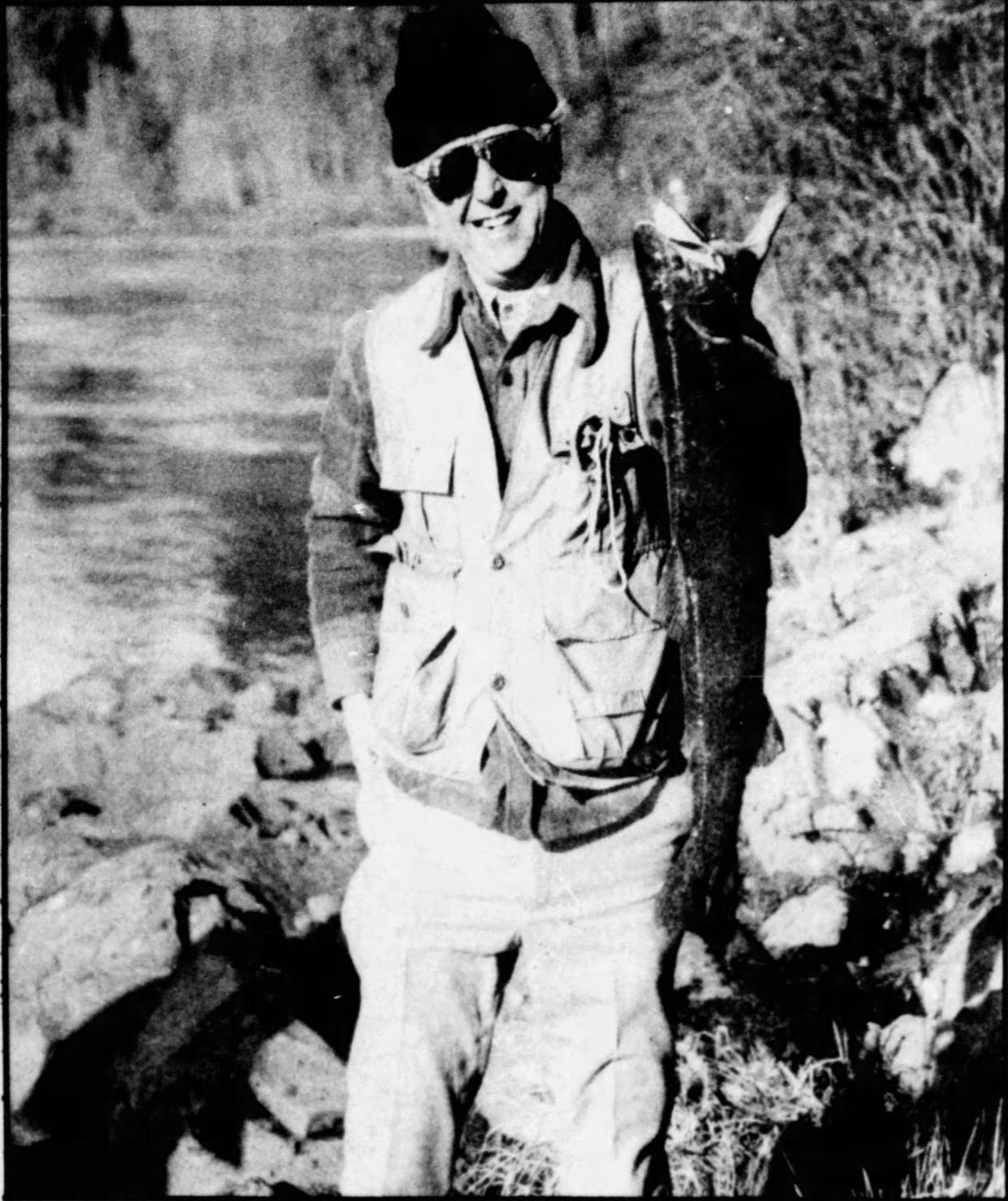
He also loved to fish. A 1981 article by a fellow angler in the Statesman Journal detailed Peterson rigging two rods for a jaunt to the Sandy River, an old lavender one and a new yellow one. It described him wearing British tweed wool slacks, a Cossack hat and a fashionable blue wool hunting shirt.
"Absolutely sartorial. A veritable rainbow of high-country fashion,” his fishing buddy wrote.
A photograph of Justice Peterson raising a trophy steelhead and grinning from ear to ear accompanied the article.
Music, which lost the coin toss, was another passion. Peterson played French horn for the Salem Pops Orchestra, a volunteer group of all ages and performance backgrounds dedicated to bringing popular and light classical music to the Salem community.
His wife said she will never forget how thrilled he was in 2010 to come home and share the news that he had become first chair, the lead of a particular instrument or section. He was 80.
Some of Anna Peterson's treasured memories include how he loved chocolate cake, how it was the family tradition for him to place a homemade Santa on top of the Christmas tree, and how she was honored to have him swear her in before each of her three terms as Salem's mayor from 2011 to 2016.
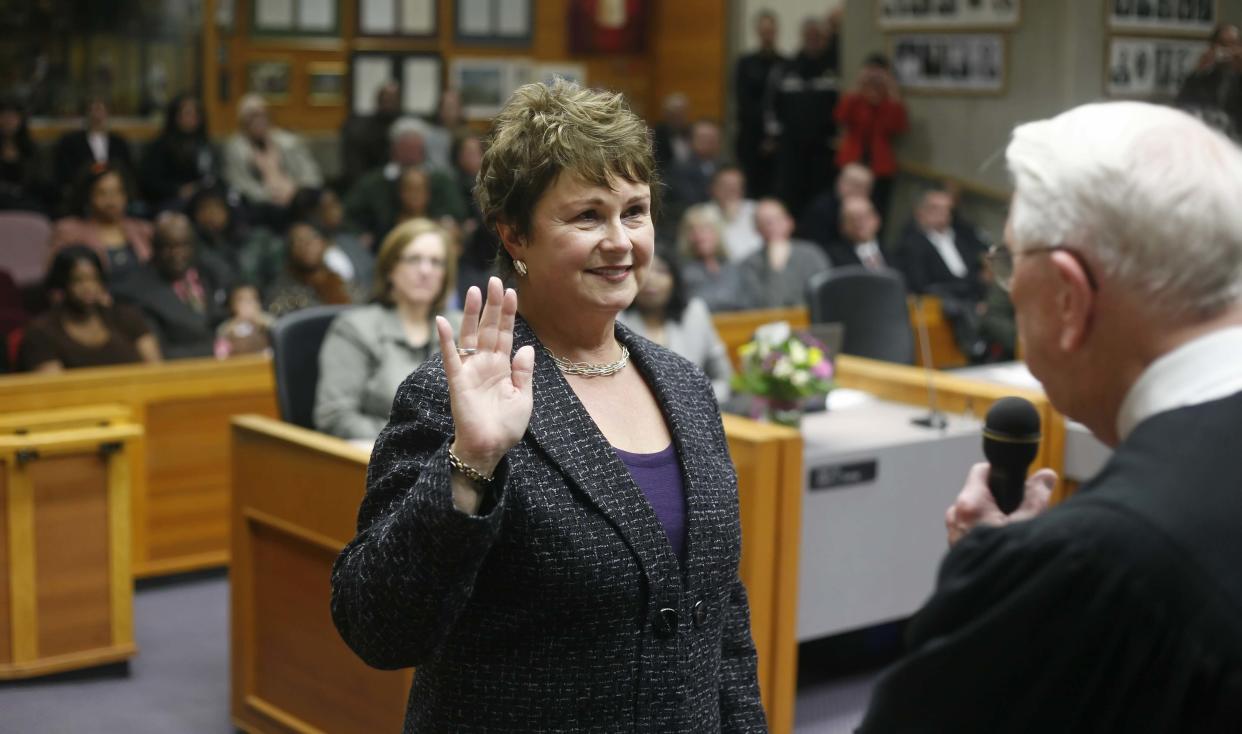
Attending services for Peterson
A memorial service for Peterson will be held at 11 a.m. Monday, Feb. 5, at St. Paul's Episcopal Church, 1444 Liberty St. SE, Salem. A luncheon will follow at the church. Both are open to the public.
The family plans a public celebration of life sometime in the spring, with date and location to be determined.
Capi Lynn is a senior reporter for the Statesman Journal. Send comments, questions and tips to her at clynn@statesmanjournal.com, or follow her work on Twitter @CapiLynn and Facebook @CapiLynnSJ.
This article originally appeared on Salem Statesman Journal: Former Oregon Supreme Court Chief Justice Edwin Peterson dies
